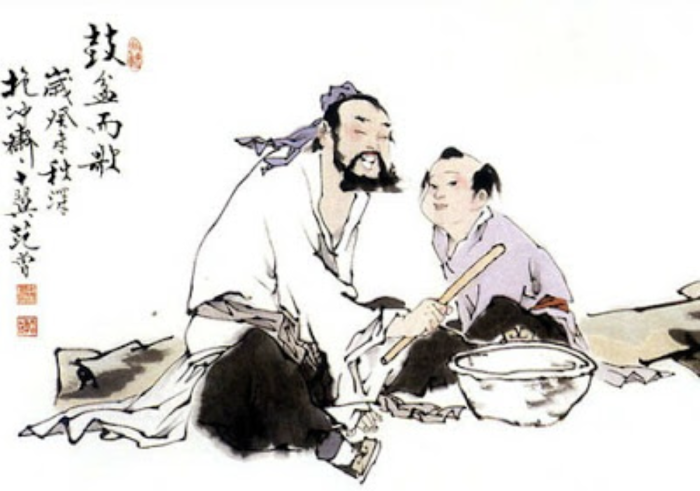
{*Did you know you can write on Elephant? Here’s how—big changes: How to Write & Make Money or at least Be of Benefit on Elephant. ~ Waylon}
~
To some extent, I think everybody is afraid of death—of the suffering that may precede it and of having to depart from loved ones.
I’m obviously no exception.
That is perhaps one of the reasons I am so health conscious, hoping to live healthily for as long as possible.
People have different views about what there is after death, and mostly these views help them to decrease their fear. Some people believe we are going to a heavenly realm (whatever this may be called), while others may just think that with the end of life our consciousness will end too. Death being the final destination.
The point these ideas have in common is that there will be no more suffering.
However, monotheistic religions also believe in hellish realms for “bad” people, whereas Indian religions (and some Greek philosophers and early Christian groups) picture a series of reincarnations before the soul can be liberated, reaching Brahman, as the Hindus call it, or Nirvana as the Buddhists call it.
The way I see death is a little like a journey to a far-away, unknown, exotic place. Who is not at least a little nervous before going to a place they don’t know, or even that they see in a negative light because of all they have heard and read about it (but aren’t we all surrounded by fake news)?
Among others, I love the way the great Chinese Taoist philosopher Zhuang Zi portrayed death.
Here are a few passages from his masterpiece named after him—Zhuang Zi, or Chuang Tzu in the old transliteration—written about 23 centuries ago:
“How can I know that the dead are not wondering how come once they could have wanted to be born?”
“Only after waking up we know we have dreamt. And there is a great awakening, after which we will know that all this is a big dream. The foolish ones believe they are awaken and believe they know who they are, kings or shepherds. How obtuse!”
“Your master was born when it was his time and he left obeying nature. If you are content with the time that has been given to you and obey nature, joy and sadness have no reason to be. Ancient people called death ‘dissolutions of the bonds on the part of the Supreme.’ The fuel burns down, but the fire passes on, we do not know its end.”
“Therefore it is said that, for those who know heavenly joy, life is the movement of heaven, death is the transformation of things.”
“Life is a loan, we borrow it when we are born. We are just dust—life and death are just like day and night. You and I have come here to observe mutation—mutation has now reached me. Why should I be horrified?”
“‘If I asked the Governor of Destiny to give you back a body, to give you bones, flesh and skin and take you back to your parents, to your wife, to your children, to your village, to your acquaintances, would you want it?’ The skull put on an angry look, frowned and said: ‘How could I leave the happiness of a king on his throne facing the south to go back to the suffering of human beings?’”
“Life transforms into death, death is the beginning of life. Who understands their order? Human life is just an aggregation of the vital breath—when the vital breath gathers there is life, when it disperses there is death. Life and death transform one into the other—why then should we be upset? The one thousand beings are just one thing.”
I love how Zhuang Zi describes death: we are scared of death because we don’t understand it. Only after death will we know that there was nothing to be scared of. Death is just part of a natural process, a natural change. And the afterlife will actually be much better than what was there before. There will be final unity.
There is so much wisdom in early Taoism, particularly in Lao Zi (Lao Tzu) and Zhuang Zi. However, only Lao Zi’s Dao de Jing (Tao te Ching) is well known, and deservedly so in my opinion, but not so much the Zhuang Zi. These two books are, in my view, among the deepest and most spiritual books ever, along with other philosophical and spiritual masterpieces like the Bhagavad Gita and the Dhammapada.
I just quoted a few lines on death, but there is so much more to the Zhuang Zi. If you are interested in spiritual and philosophical issues, I strongly recommend it!
~

This account does not have permission to comment on Elephant Journal.
Contact support with questions.